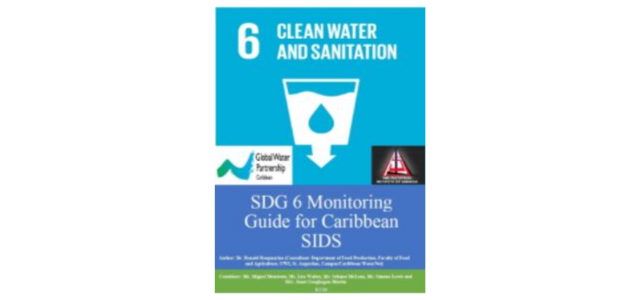In 2016, Jamaica participated as a pilot country in the UN-Water Integrated Monitoring Initiative for SDG 6. The pilot feedback highlighted the importance of integration – across sectors and stakeholders, and within existing national processes and structures – for successful collection, analysis and reporting of data.
In continuation of Jamaica's work on the monitoring of the SDGs, the Statistical Institute of Jamaica (STATIN), in collaboration with the Global Water Partnership-Caribbean (GWP-C), hosted a four-day training workshop titled “Improving Sustainable Development Goal 6 Monitoring in Jamaica.”
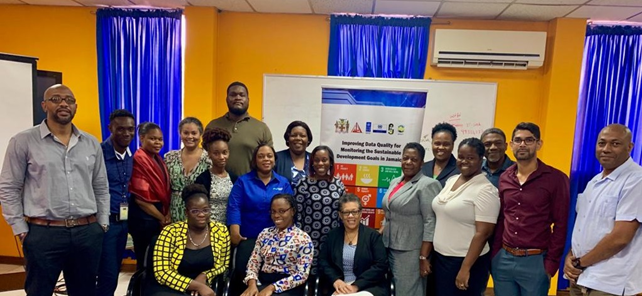
Representatives from STATIN and GWP-C are seen here along with some of the workshop’s participants and workshop Facilitator.
The national workshop was held in Jamaica from July 8th – 11th, 2019. It targeted various stakeholders including GWP-C Partners in Jamaica and persons involved in data collection and statistical analysis relating to water and sanitation indicators.
The main objective of the workshop was to increase the knowledge of participants in relation to SDG 6 indicators and to augment the 2016 monitoring initiative in Jamaica towards regional applicability.
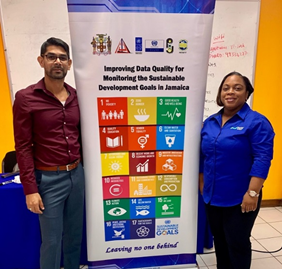
Ms. Simone Lewis, GWP-C Regional Coordinator (right) is seen here with Dr. Ronald Roopnarine (left), the workshop’s Facilitator.
The Jamaican context was therefore used as the baseline for developing the SDG 6 Monitoring Guide for Caribbean Small Island Developing States (SIDS). Existing institutional frameworks, monitoring systems and processes in Jamaica were examined and built upon where necessary to develop the document.
In order to achieve the goals of the training workshop, GWP-C put out a call within its network to find two (2) suitable candidates to act as understudies to the workshop facilitator/consultant (Dr. Ronald Roopnarine – Department of Food Production, Faculty of Food and Agriculture of The University of the West Indies, St. Augustine / Network Manager of Caribbean WaterNet). This provision, enabled regional capacity building on SDG 6 monitoring, as understudies were trained and equipped to deliver similar training workshops across the region as needed.
The two (2) candidates selected were Ms. Lise Walter, a Civil Engineer with twenty-five (25) years of experience in the field of water resources from Jamaica. The other was Mr. Miguel Montoute, a water resources specialist from St. Lucia with a wealth of experience in the implementation of various water sector projects.
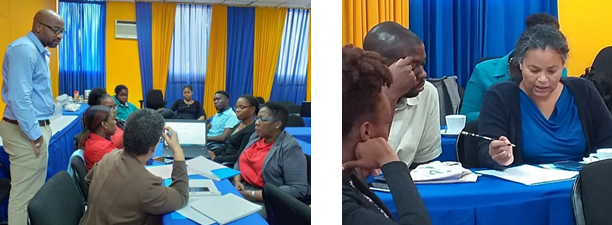
Mr. Miguel Montoute (left standing) and Ms. Lise Walter (extreme right) who understudied the workshop Facilitator, are seen here during a group exercise.
The SDG 6 Monitoring Guide for Caribbean SIDS has been finalised. The document seeks to provide strategies to improve the SDG 6 monitoring and reporting process in Caribbean SIDS by examining current methodologies and uses “The Jamaica Experience” to propose recommendations on improving the process.
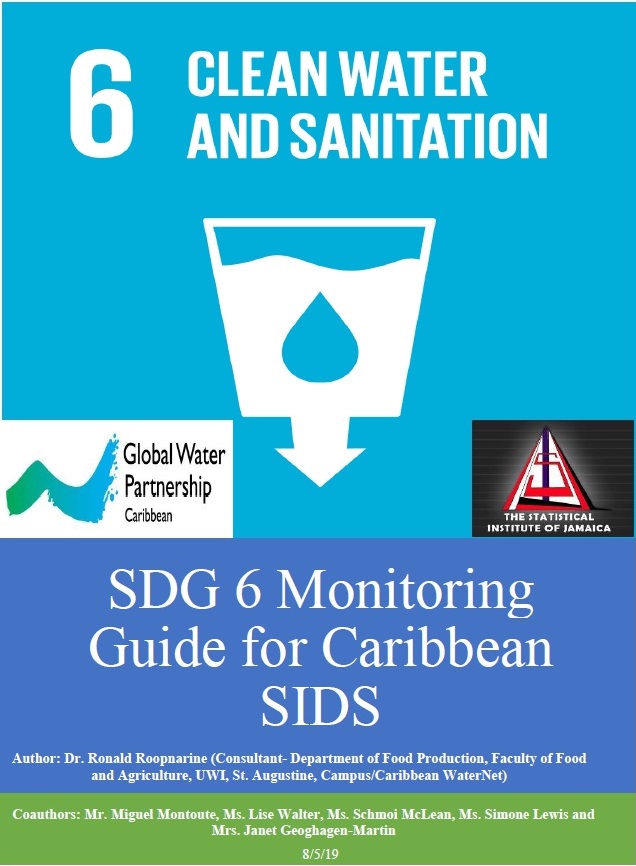
Overall, the Guide aims to:
- Increase understanding of the major concepts attached to SDG 6.
- Recommend adaptations and enhancements to existing SDG 6 monitoring methodologies to improve applicability in Caribbean SIDS.
- To provide a comprehensive guide for all SDG 6 indicators that can assist Caribbean SIDS in the monitoring process.
Through this new knowledge product and other initiatives, GWP-C remains committed to advancing the achievement of SDG 6 in the Caribbean.
Download the SDG 6 Monitoring Guide for Caribbean SIDS here.
